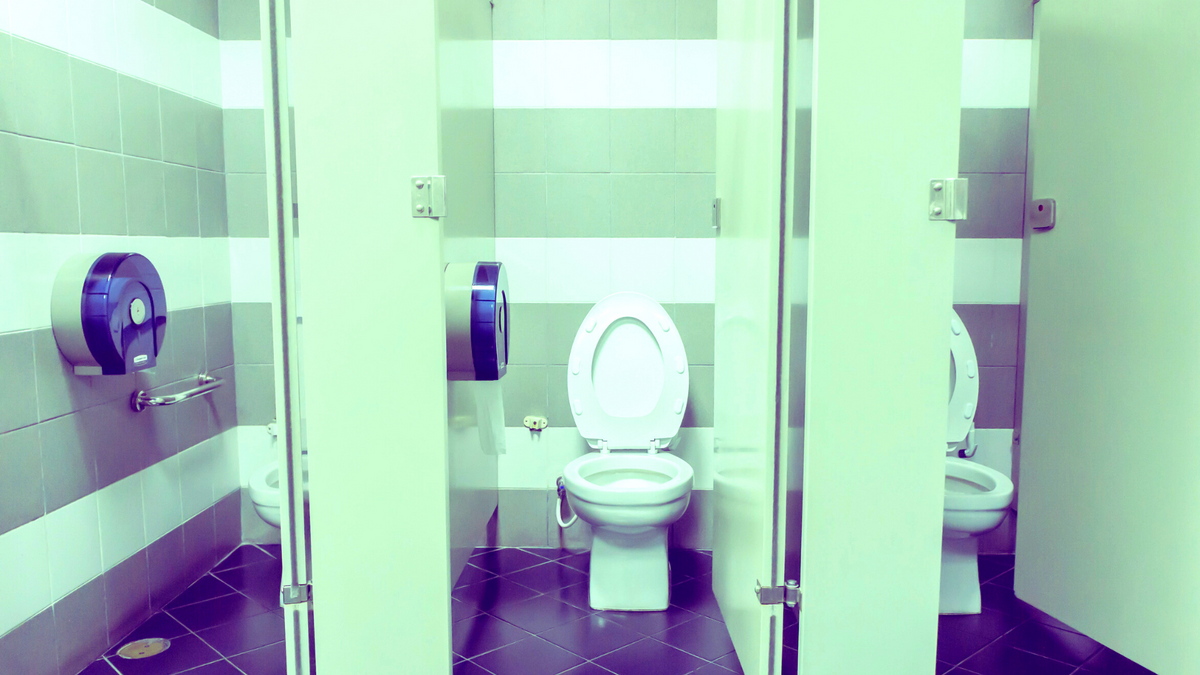Access to Single-Sex Toilets is a Women's Human Right
In 2018, 90% of cases of sexual assaults, voyeurism and harassment happened in unisex facilities.

World Health Organization (WHO) says that 60% of the world population do not have access to “private toilets not shared with another family and connected to an excreta treatment system.” That means that 60% of people have to relieve themselves in the open air. The research available from institutions like UNICEF, WHO and others estimates that this represents an even greater danger for women and girls.
The facts available show that women and girls have to resort to sharing toilets with other families; or to relieve themselves at night to avoid being seen by male family members or neighbors; in many places, they do not have any toilets to use in public spaces or in schools. These situations result in women and girls facing sexual harassment, sexual violence and rape from males, says WHO, with studies conducted in over thirty countries, including places like, Uganda, Kenya, Nigeria and India.
The lack of private toilets or changing rooms for women and girls also represents a health risk for them, according to UNICEF. Women and girls unable to access these facilities for their personal hygiene while menstruating can cause infections and diseases. School girls all over the world, including developed countries, face skipping school or even leaving school altogether for lack of female facilities designated to girls who are already menstruating, which “fuels the spiral of poverty.” In contrast, the same reports reveal that, in places like Tanzania, the construction of female toilets in school shows an increase of 10% in the enrollment of girls at a school.
”Vast majority of reported cases where males sexually assaulted women and children at public swimming pools in the UK took place in unisex changing rooms.”
Maternal and infant death rates soar when pregnant women do not have access to these facilities in primary health care. “There is an obvious correlation between the absence of toilets, which causes diarrheal diseases, and child mortality,” say UNICEF reports.
“Only two-thirds of schools in the world have toilets”—and many of them are unisex. While having at least a unisex toilet is considered progress, the lack of female toilets is still an issue for school girls and it can still affect adult women moving around in the public sphere. A Freedom of Information (FOI) requested by the Sunday Times revealed that the “vast majority” of reported cases where males sexually assaulted women and children at public swimming pools in the UK took place in unisex changing rooms.
The data was published in 2018 in the Independent and suggested that unisex changing rooms are “more dangerous for women and girls than single-sex facilities.”
The information provided by the FOI stated that 90% of cases of sexual assaults, voyeurism and harassment happened in unisex facilities. “These figures show that women and girls are more vulnerable in mixed changing rooms and there is a danger these places are becoming a magnet for sexual offenders,” said MP David Davies at the time the piece was published.
”The information provided by the FOI stated that 90% of cases of sexual assaults, voyeurism and harassment happened in unisex facilities.”
In 2018, unisex facilities were less than half of all in the UK, but many schools, companies, hospitals and public buildings in general have changed single-sex toilets into unisex. Many places turned toilets into unisex by simply changing the signage of female toilets while keeping male toilets intact, as reported by the Mirror and the Daily Mail in 2021. Campaigners advocating for single sex toilets to remain single-sex or to go back to being single-sex also claim that women have demanded separate female toilets since the last century.
Women in the West now have to deal with the very few female toilets available to them being turned unisex. The surveys above also reveal that, even when male toilets are turned into unisex facilities too, women and girls still suffer because most refuse to use the unisex rooms, leading to “urinary leashes.” In the UK theatre The Old Vic, in 2019 women had access to 24 toilets that should be shared with men, and men had access to 42 facilities with urinals that “only they would use.”
School girls—even in developed countries—are refusing to use unisex facilities and skipping school to avoid using these toilets. This means girls are being excluded from formal education and risking being excluded in the future for higher job positions due to lack of formal qualification. “Evidence also shows safe and clean toilets encourage girls to stay in school,” according to the United Nations.
“Toilets are, inescapably, a feminist issue,” wrote Lezlie Lowe for the Guardian in 2019. “There are simply more of us in there,” (apart from applying lipstick), she says. “Women empty their bladders more frequently than men and take longer – an average start-to-finish time of 60 seconds for men, but 90 for women.” Lowe also wrote that women visit toilets for “more reasons,” such as menstrual hygiene and while caring for children or adults. She added that,
“Based on bleeding and bladders and babies, women need two to three times more provision than men, just to even out the waiting times. But in so many traditional public toilet setups, perversely, men often enjoy more facilities than women.”
Single-sex female toilets for girls at schools with water points for menstrual hygiene and availability of menstrual pads keep girls at school, allowing them to get a formal education to ensure they have a fighting chance against poverty.
Single-sex female toilets and appropriate toilet breaks at the workplace allow women to keep their jobs and progress in their careers. This ensures that women can be financially independent. Most households around the world are led by women who are mothers. Women also experience domestic violence and being financially independent allows them to leave abusive partners. Single-sex toilets for women and girls protect them from male violence and male harassment. As Ms Lowe says, female toilets are a feminist issue and as such, must become a priority in public policies.
Do you want to bring the "gender madness" to an end? Help us write about it! 4W is able to pay our all-female staff and writers thanks to the generous support of our paid monthly subscribers.
Enter your email below to sign in or become a 4W member and join the conversation.
(Already did this? Try refreshing the page!)





Comments